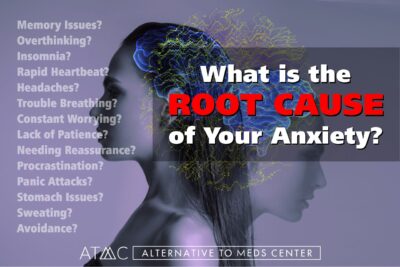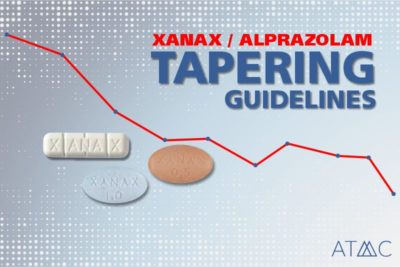Xanax for Treating Unwanted Symptoms
Benzodiazepines like Xanax are intended for short-term use only, at the lowest dose possible, and for specific, severe conditions. Benzodiazepines do nothing to alleviate the underlying causes of conditions such as severe anxiety or panic disorders, and only a minority of patients should be taking them. However, large numbers of patients continue to receive prescriptions far longer than the recommended maximum timeframe of 2 – 4 weeks, at higher dosages than the recommended minimum, and for a host of conditions that are less than “severe” in nature, according to a 2019 review in the British Journal of General Practice.18
As of 2018, Xanax prescriptions topped the list of ALL psychotropic medications in the US, with about 48,000,000 prescriptions written in 2013 alone.16
Off-label use of benzodiazepines is reportedly rampant. A 2019 study out of Barcelona found that of patients taking benzodiazepines long-term, over 96% were for off-label indications.19-21,23
The soaring use of prescription drugs is particularly concerning in the western world. A review published in the Journal of Demography studied the historic patterns in the US population, and predicted that newborns born in 2019 will be taking prescription drugs for half their lifetimes.22
Xanax is licensed to treat:
- Acute generalized anxiety disorder in adults
- Acute panic disorder in adults, with or without agoraphobia
Off-label uses include:
- Depression
- Insomnia
- PMS
- Substance Use disorders
- Seizures
- Alcohol withdrawal
- Epilepsy
- Muscle spasms
- Catatonia that presents in Bipolar and schizophrenia

While Xanax can very quickly dampen anxiety or insomnia for a brief period, and is effective at aborting an acute seizure, drug tolerance sets in rapidly. Symptoms can return and sometimes with a vengeance. This is why dosages are so often raised over the course of treatment. However, in addition to the original symptoms returning, new drug-induced effects may also occur. It is truly tragic that GPs prescribe the majority of Xanax prescription, but receive inadequate training on the drugs used for mental health. After all, medical doctors are not mental health specialists.
Xanax, like all benzodiazepines, has a high risk of addiction and dependence after even short-term use. Most people would never choose a drug that is so troublesome to stop taking. Benzodiazepines can produce harsh discontinuation effects even after taking them for a short time, and even after drug tolerance has developed. Never abruptly stop taking a benzodiazepine, even if you feel it “isn’t working” anymore.1,6
Frequent Errors in Prescribing
As early as 1988, the British Association of Pharmacology issued warnings against using benzodiazepines longer than 2 to 4 weeks.1 This was based on several safety studies that concluded benzodiazepines should be given only in the lowest dose possible and only for 2 to 4 weeks at the absolute maximum. This was because tolerance tends to develop quite quickly, and this can result in new symptoms emerging and original symptoms returning and even intensifying.
A person may go back to their prescriber with concerns about drug reactions they are experiencing. The typical response is for the prescriber to increase the dosage. Also common, the doctor may switch the patient to another drug or multiple drugs. This type of experimentation approach often induces worsening symptoms. This can cause a cascade of unpredictable outcomes. Doctors are trained to think they are preventing a relapse, or mistakenly interpret these symptoms as newly developing mental illness and put a label on it. In many cases, the more drugs they prescribe the worse their patient gets.
In 2018, published guidelines indicated that benzodiazepines prescribed for acute insomnia or disabling anxiety should be considered a “one-off” and the 2- to 4-week period includes coming off the drug. Additionally, tapering to zero was to be done as quickly as possible. While this is much preferable to taking Benzos for 20 years and then being unable to stop taking them at all, tapering Xanax quickly is NOT recommended. Typically, it takes longer than a few days or a week to achieve safe cessation.1,6,7
Researchers concluded that physicians should not prescribe benzodiazepines at all in treatment for mild anxiety or long-term insomnia. While the drug can mask symptoms, benzodiazepines can in no way be considered to cure anything. And after stopping Xanax, or other benzos, the symptoms will typically return, sometimes referred to as “relapsing.”
Safe Guidelines vs Prescription Errors
With the above guidelines, it seems likely that doctors may have prescribed benzodiazepines to many patients in error. Also, a patient may have taken Xanax for much longer periods of time than the guidelines say. Trying to quit Xanax or similar drugs under these circumstances may devolve into quite a complex issue. Actually, this is probably closer to the “norm” rather than the exception, as most doctors seem to be surprisingly unaware of these cautions, safety studies, and guidelines. This, unfortunately, may have caused many patients to suffer from inadvertent drug dependence or addiction. And, sets up a kind of trap where a person feels they must continue to take the drug or else suffer harsh and intolerable withdrawal effects. Yet, doctors are ill-equipped to give very much help or information about how to get off Xanax. We can help.
Xanax Tapering Before Pregnancy
Studies such as the 2021 report from the Agency Healthcare Research inform us about many troubling consequences occurring in infants where the mother was taking Xanax either early in pregnancy or before conception. Unfortunately, such outcomes include ectopic pregnancy and a higher incidence of needing newborn intensive care.5
It follows then, a significant health risk arises if a woman taking benzodiazepines is of child-bearing age and especially when a woman is planning a pregnancy. This data should be given appropriate attention since we additionally learn from the Psychiatric Textbook of Psychosomatic Medicine published in 2011 that between 21-33% of all pregnant women in the US were on prescription medication and that the most frequently prescribed psychotropic medicine of all is benzodiazepines.16,17
Finding and Treating Root Causes
For anxiety and insomnia, the effort to delve into root causes could have prevented simply offering the patient a prescription for benzodiazepines.  For instance, did you know that Cambridge University published a study in 2018 that outlines a relationship between gut bacteria, anxiety, and depression? 2
For instance, did you know that Cambridge University published a study in 2018 that outlines a relationship between gut bacteria, anxiety, and depression? 2
We highly recommend one investigate the root causes of unwanted symptoms before starting on benzos. For example, overlooked contributing factors could include a dysfunctional thyroid, cardiovascular health issues, a body that has accumulated toxins, urban-living stress, poor diet, and food allergies. All of these factors may contribute to or trigger anxiety.3,8-15
Fortunately, lab testing can explore biological, genetic, dietary, and toxic areas of interest, so they can be effectively addressed in treatment. Treating the underlying causes — neurotoxin removal for example — will relieve conditions like anxiety, stress, depression, and insomnia. These and other areas should be carefully checked to discover what may actually be causing their anxiety or insomnia. That will open the door to reducing or entirely eliminating the symptoms. And, doing so can reduce or eliminate the need to take anti-anxiety benzodiazepines. This stands at the very heart of the programs at Alternative to Meds Center.
Holistic Methods Provided by Alternative to Meds
At Alternative to Meds Center, we use a wide range of holistic treatments before, during, and after Xanax tapering.
Holistic Xanax tapering steps include:
Find Out More About the Xanax Tapering Program at Alternative to Meds
Perhaps you or your loved one are in the difficult position of wanting to get off Xanax, but you are feeling trapped and frustrated, not knowing exactly how to proceed. Do not despair.
We have been helping our clients complete their Xanax tapering programs with consistent success and significant improvements in natural mental health for over 17 years. Please feel free to contact us at Alternative to Meds Center. Xanax tapering is our specialty, and we have helped thousands of clients to reach their health goals.

 There is no one-size-fits-all approach to tapering Xanax. Many factors will determine the time it will take to successfully get off Xanax.
There is no one-size-fits-all approach to tapering Xanax. Many factors will determine the time it will take to successfully get off Xanax.
 For instance, did you know that Cambridge University published a study in 2018 that outlines a relationship between gut bacteria, anxiety, and depression? 2
For instance, did you know that Cambridge University published a study in 2018 that outlines a relationship between gut bacteria, anxiety, and depression? 2 medically managed
medically managed 







